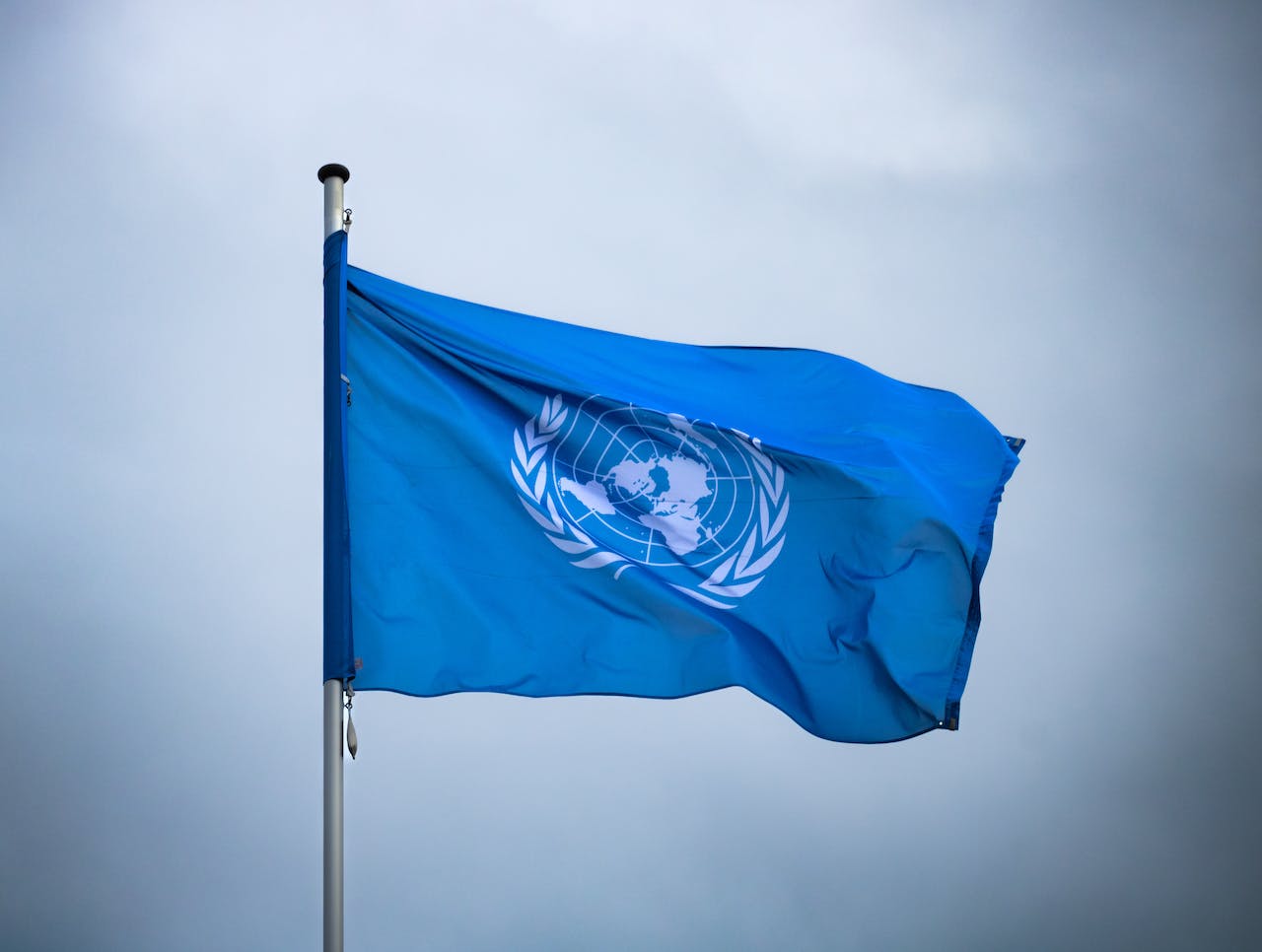The realm of international relations often finds itself deeply intertwined with the tumultuous world of political scandals. These events, characterized by their capacity to shake the foundations of governments, possess a unique power to influence global dynamics. Understanding how these scandals mold international interactions is crucial for grasping the complexities of global politics.
Political scandals, by their very nature, have far-reaching implications that extend beyond national borders. When a political figure or institution is embroiled in controversy, it’s not just the domestic audience that’s watching; the international community is also keenly observant. These situations can drastically alter diplomatic relationships, trade negotiations, and even international security arrangements. Delving into this intersection reveals a multifaceted picture of how domestic political turmoil can ripple across the world stage.
Political Scandals and Global Politics
Grasping the impact of political scandals on international relations is imperative for policymakers, diplomats, and scholars alike. In an era where information travels instantaneously, the repercussions of a scandal can be immediate and unpredictable, affecting everything from bilateral relations to global market stability. A nuanced understanding of this dynamic enables better anticipation of the international fallout from political scandals and helps create more effective responses and strategies.
The Nature of Political Scandals
Political scandals, by definition, involve instances of alleged or proven misconduct by individuals or parties in positions of political power. These events typically feature violations of trust, moral lapses, or legal breaches, resulting in public outrage and media scrutiny. Key characteristics of political scandals include their high-profile nature, the involvement of influential political figures, and the capacity to trigger widespread public reaction. They often start with a revelation or accusation and can escalate into full-blown crises, affecting not just the individuals involved but also the institutions they represent.
Looking back through history, political scandals have repeatedly played pivotal roles in shaping international relations. For instance, the Watergate scandal in the United States during the 1970s had ramifications that reached far beyond its borders, affecting America’s global standing and foreign policy. Similarly, more recent scandals, such as those involving data leaks and election interferences, have demonstrated the power of political scandals to influence international diplomatic relations, cybersecurity policies, and global perceptions of democracy and governance.
Immediate Effects on Diplomatic Relations
Political scandals often trigger immediate ripples in international diplomacy. For instance, the U.S. Iran-Contra affair in the 1980s significantly strained relations with several Central American countries and reshaped America’s foreign policy narrative. Similarly, the recent scandal involving Russian interference in the 2016 U.S. presidential election had immediate global repercussions, affecting diplomatic relations between the United States, Russia, and other NATO countries.
The Role of Media
In the wake of a political scandal, the role of international media becomes critical in shaping global perceptions. How a scandal is reported and interpreted by the media can significantly influence foreign governments’ responses and public opinion worldwide. For example, the global media coverage of the WikiLeaks publications dramatically affected U.S. diplomatic relations, leading to both criticism and reassessment of policies by various nations. The media’s portrayal of political scandals not only informs the international community but can also amplify the diplomatic impact of these events, thereby influencing the course of international relations.
You may also read our post about the Biggest Political Scandals of the 80s for some interesting examples of political scandals.
The Economic Consequences of Political Scandals
Political scandals can profoundly impact a nation’s economic relations and trade agreements. For example, a scandal that undermines the credibility of a government can lead to hesitation or reluctance from other countries to enter into or maintain trade agreements. A relevant case is the Brazilian Operation Car Wash scandal, which not only tarnished the reputation of the government but also raised concerns among foreign investors and trade partners about the stability and reliability of Brazil’s economic environment. Such scenarios often result in renegotiations of existing trade deals or the freezing of new trade negotiations, impacting the economic well-being of the countries involved.
The Impact on International Markets and Investor Confidence
The ripple effect of political scandals often extends to international markets and investor confidence. Scandals can trigger market volatility, as investors respond to uncertainties and perceived risks in a nation’s political climate. For instance, the Greek government debt crisis, exacerbated by political scandal and instability, led to significant fluctuations in global markets. Investor confidence is closely tied to a country’s political stability; hence, scandals can lead to capital flight, a decrease in foreign direct investment, and a general wariness in the international business community regarding future investments.
The economic consequences of political scandals are a testament to how deeply interconnected politics and economics are on a global scale. These events can disrupt not just domestic markets but also international economic systems, affecting everything from global trade dynamics to the investment decisions of multinational corporations. Recognizing and understanding these economic ramifications is crucial for policymakers, business leaders, and investors navigating an increasingly interconnected and politically sensitive global economy.
Long-Term Implications for Foreign Policy
Political scandals often act as catalysts for significant long-term changes in a nation’s foreign policy. In the aftermath of a scandal, governments may alter their international stance, reevaluate alliances, or change their diplomatic priorities. For example, the infamous Watergate scandal in the United States led to a period of introspection and a more cautious foreign policy approach, particularly in matters of international espionage and intervention. Similarly, the Profumo affair in the United Kingdom during the 1960s had lasting effects on British foreign policy, particularly in terms of relations with the Soviet Union and the United States.
The Lasting Impact on International Alliances and Partnerships
Political scandals can also have enduring effects on international alliances and partnerships. These events can erode trust between countries, leading to a reconfiguration of long-standing alliances or the formation of new partnerships. The fallout from the Iraq War and the misinformation about weapons of mass destruction, for instance, strained the United States’ relations with some of its key allies and reshaped its future military and diplomatic strategies. In some cases, the distrust generated by political scandals can linger for years, influencing diplomatic relations and collaborative efforts on global issues for a long time.
The Role of International Organizations
When a political scandal implicates human rights violations or breaches international law, organizations like the United Nations or the International Criminal Court might step in to investigate or mediate. The response of these organizations can range from issuing condemnations and imposing sanctions to facilitating dialogue between affected parties. The FIFA corruption scandal, for example, drew responses from multiple international bodies, reflecting the global nature of the issue and the need for a coordinated international approach.
Mediation and Escalation
The involvement of international organizations in political scandals can either help in de-escalating the situation or, at times, inadvertently escalate tensions. Their role in mediating conflicts arising from scandals often involves diplomatic negotiations, imposing sanctions, or facilitating peace talks. However, the actions of these organizations can also be perceived as intrusive or biased, potentially exacerbating the situation, especially if there are underlying geopolitical tensions. The effectiveness of these organizations in managing political scandals largely depends on their perceived neutrality, the cooperation of member states, and their ability to navigate complex international politics.
The role of international organizations in the context of political scandals is crucial, as these entities often provide the platform and mechanisms for addressing issues that transcend national boundaries. Their involvement underscores the importance of international cooperation and collective action in managing political crises and upholding global norms and standards. Understanding the role and impact of these organizations is key to comprehending the broader implications of political scandals in the realm of international relations.
Rebuilding Trust and Reputation
After a political scandal, the path to restoring a nation’s international trust and reputation can be intricate and demanding. Key strategies include transparent and thorough investigations into the scandal, public accountability for any misconduct, and demonstrable reforms to prevent future occurrences. For example, after the South Korean political scandal involving former President Park Geun-hye, the government undertook significant efforts to restore trust, including legal reforms and transparent election of a new leader. Additionally, proactive diplomatic engagement and reaffirming commitments to international agreements and partnerships can help rebuild a nation’s standing on the global stage.
Future Outlook and Preventive Measures
The future landscape of political scandals is likely to be significantly influenced by advancements in technology and changes in media landscapes. Emerging technologies like artificial intelligence, big data analytics, and enhanced surveillance capabilities could potentially make it easier to uncover scandals or, conversely, to conceal them.
The role of social media and online platforms in rapidly disseminating information (or misinformation) will also shape how political scandals unfold and are perceived globally. These technologies could lead to more immediate and widespread impact of scandals, necessitating quicker response and management strategies from governments and international organizations.
Preventive Measures and Ethical Frameworks
To mitigate the impact of future political scandals, especially in the context of these emerging technologies, it is crucial to develop comprehensive preventive measures and ethical frameworks. This involves strengthening institutions and practices that promote transparency and accountability in governance. Implementing robust data protection laws, promoting ethical standards in political leadership, and ensuring the independence of the judiciary and press are vital steps in this direction. Additionally, international cooperation in establishing norms and regulations for digital spaces and information sharing can play a critical role in preventing and managing political scandals in the future.
Conclusion
The intricate relationship between political scandals and international relations plays a pivotal role in shaping the landscape of global politics. Political scandals have the potential to strain diplomatic relations between nations. The exposure of corruption or unethical behavior within a government can lead to a loss of trust and confidence among international partners, making it difficult to cooperate on crucial issues such as trade agreements, security alliances, and international diplomacy.
In a world that is increasingly interconnected, the consequences of political scandals are not limited to the domestic sphere but have far-reaching implications on the international stage. In an era where information travels at the speed of light and global scrutiny is ever-present, it is incumbent upon nations to prioritize transparency, accountability, and ethical governance. Acknowledging the significance of this relationship and taking proactive steps to address its challenges can contribute to a more stable, cooperative, and peaceful international order.



